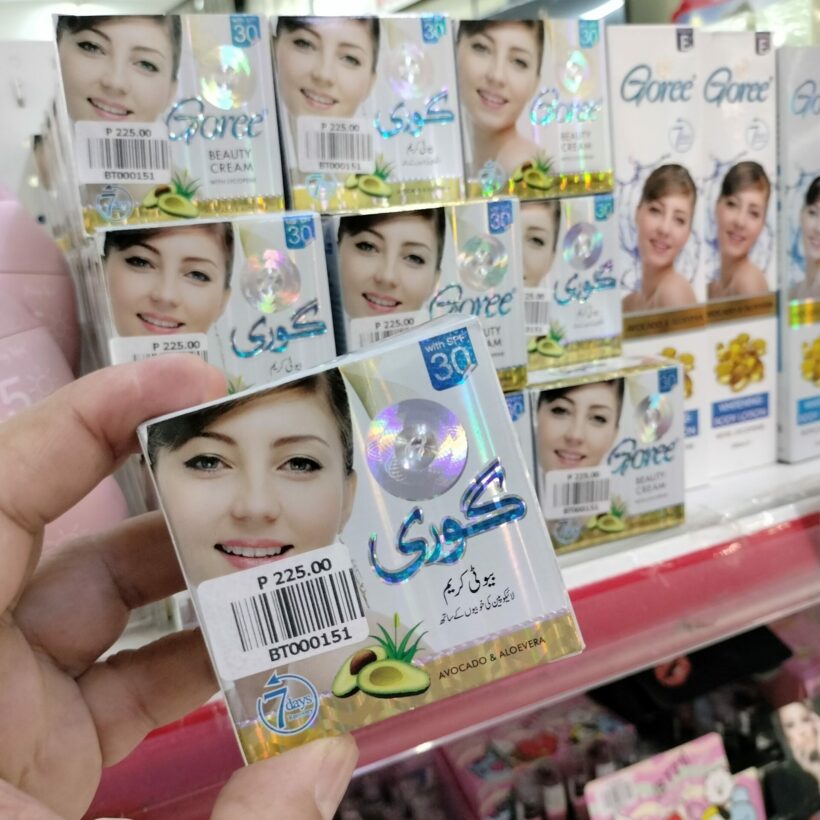November 21, 2024, Quezon City. The toxics watchdog group EcoWaste Coalition has again called the attention of the Regional Field Office (RFO) of the Food and Drug Administration (FDA) in Region VII, Philippines for the rampant sale of prohibited cosmetics with mercury, particularly in Cebu City.
According to the rapid monitoring conducted by the group last Sunday, at least 12 retail outlets sell FDA-banned cosmetics laden with mercury, particularly at 138 Mall, Elizabeth Mall and other locations not far from the RFO located at Leon Kilat St. cor. Sanciangko St., Cebu City.
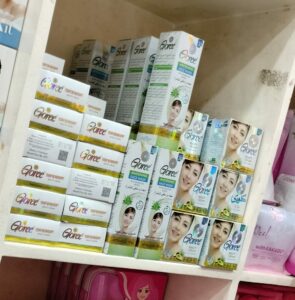
Melody Beauty Products Trading near the FDA’s Regional Field Office in Cebu City offers these banned Goree products containing mercury.
“We appeal to concerned FDA regulatory officers in the region to initiate immediate law enforcement action to rid the marketplace of dangerous cosmetics with mercury that can harm the people and the ecosystems,” said Aileen Lucero, National Coordinator, EcoWaste Coalition. “To break this illicit trade, those behind it should be identified, charged, and prosecuted to the fullest extent of the law, if only to uphold the inalienable human right to health and a non-toxic environment.”
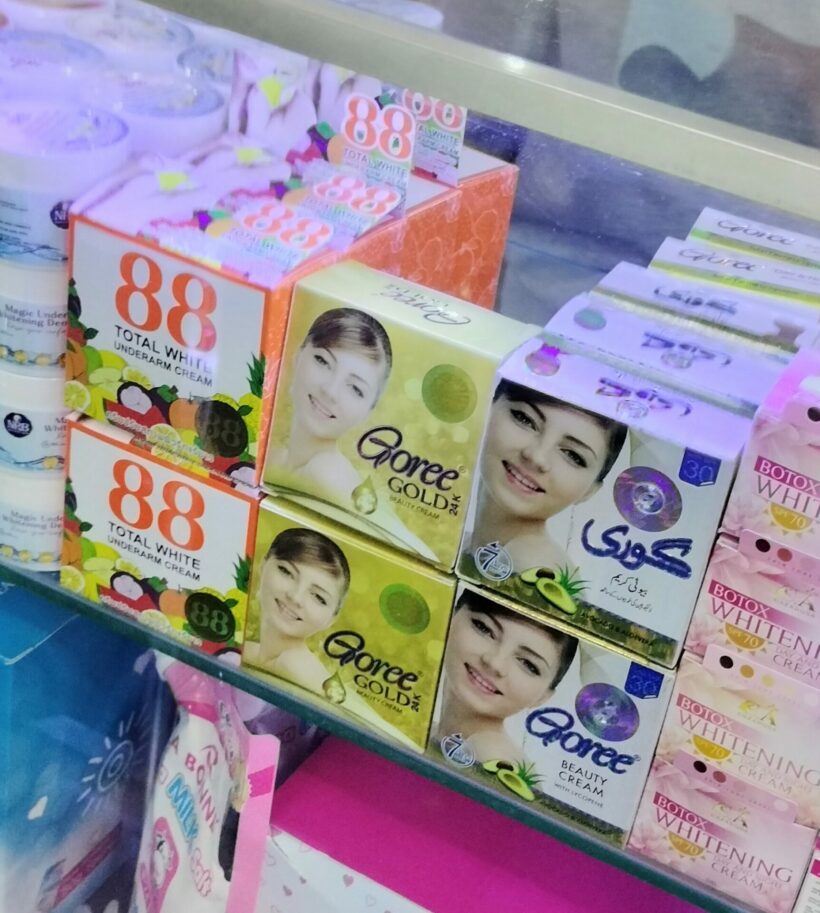
One of the many stores operating inside the 138 Mall in Colon Sr. sells FDA-banned cosmetics laden with mercury.
Among the forbidden items being offered for sale in Cebu City are Goree Beauty Cream with Lycopene (banned in 2017 and again in 2023), Goree Beauty Day & Night Beauty Cream (banned in 2017 and 2023) and Goree Gold 24K Beauty Cream (banned in 2023) from Pakistan, and 88 Total White Underarm Cream (banned in 2021) from Thailand.
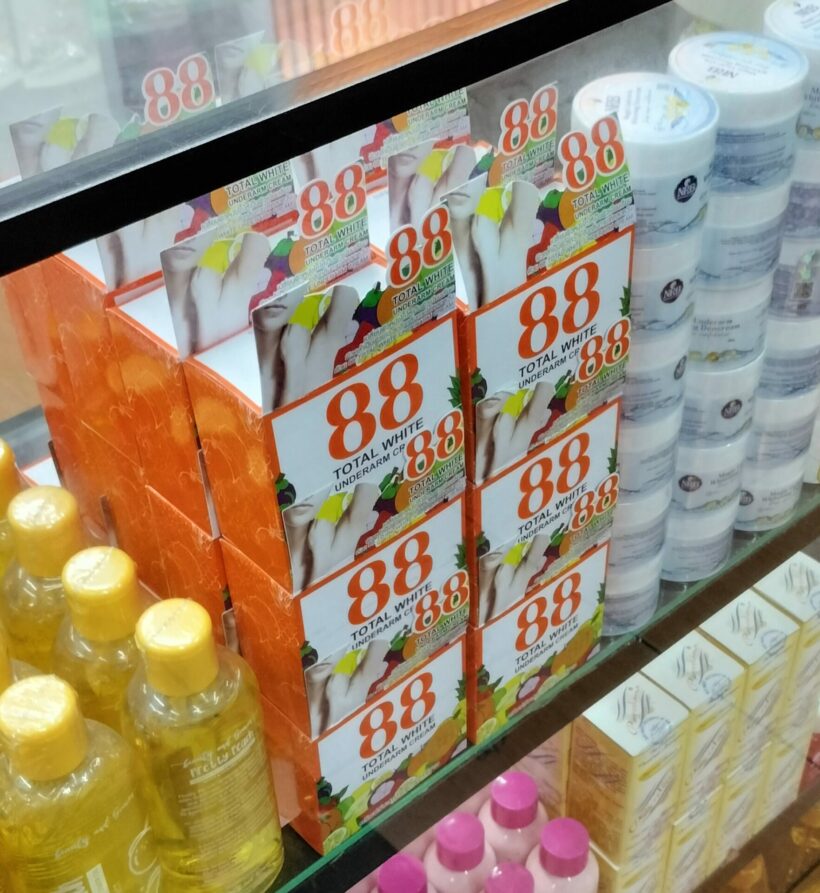
The FDA has banned this unauthorized 88 Total White Underarm Cream in 2021. Subsequent analysis by the EcoWaste Coalition found this product contaminated with mercury.
To demonstrate how contaminated these products are, the group purchased a pair of Goree Beauty Creams and had them screened for mercury using an X-Ray Fluorescence (XRF) analyzer. The products were purchased with a receipt provided at Melody Beauty Products Trading, a store with a signage that is only about 60 steps away from the RFO.
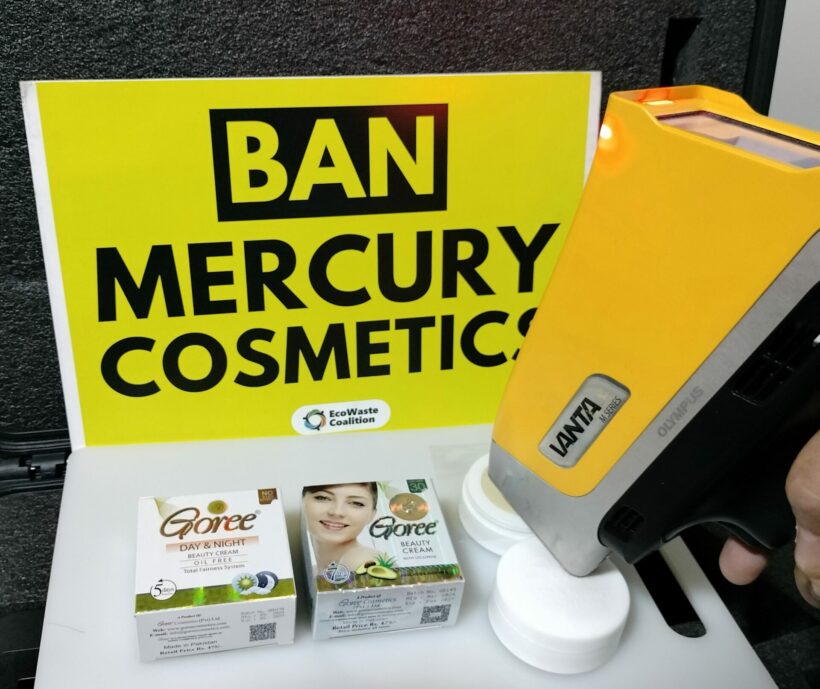
A staff of the EcoWaste Coalition screens a Goree facial cream for mercury content using an X-Ray Fluorescence (XRF) analyzer.
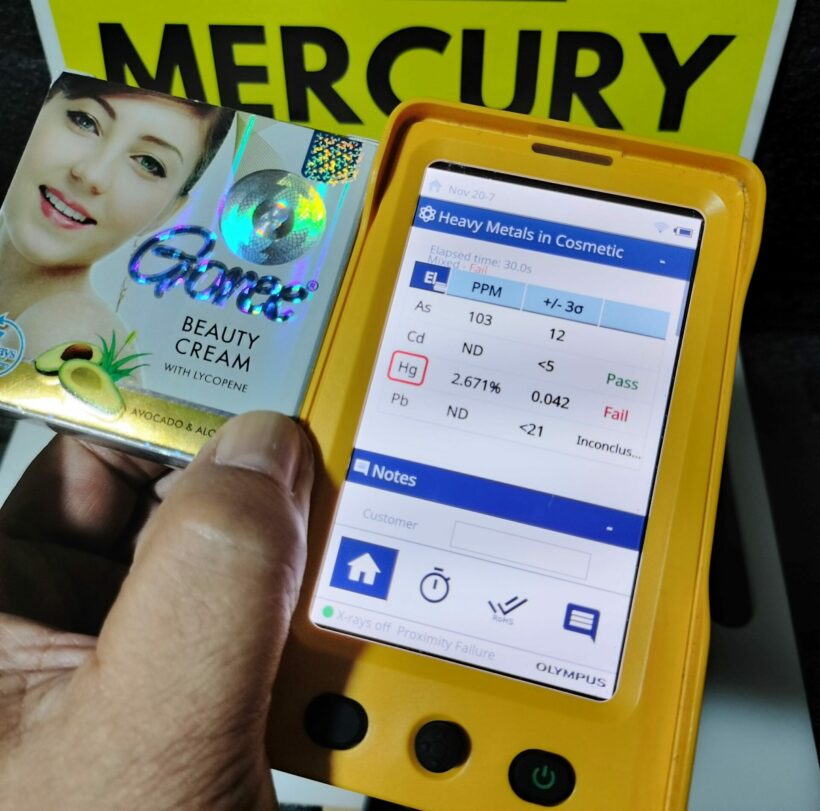
As per XRF screening, this Goree Beauty Cream with Lycopene manufactured in March 2024 is laden with 26,710 parts per million (ppm) of mercury, way above the 1 ppm limit.
As per the Asean Cosmetic Directive (ACD), as well as the 15 ppm limit for waste to be considered ‘mercury waste’ under the Minamata Convention on Mercury.
Last June 2024, the EcoWaste Coalition reported to FDA’s head office in Muntinlupa City that it had monitored the illegal sale of mercury cosmetics in 48 retail kiosks and shops in Cebu, Lapu-Lapu, Mandaue and Naga Cities and the Municipality of Minglanilla. Twenty-three of such non-compliant retailers are in Cebu City.
The FDA Center for Cosmetic and Household/Urban Substances Regulation and Research (CCHUSRR) promptly acknowledged the report submitted by the group and referred it to the Field Regulatory Operations Office (FROO), the Visayas Cluster FROO, and the RFO “for monitoring and appropriate action.”
Toxic mercury in skin-lightening products, the World Health Organization (WHO) said, can cause skin rashes, scarring and discoloration; reduced skin’s resistance to bacterial and fungal infections; nervous, renal, and immune system damage; and anxiety, depression and psychosis. According to the United Nations Environment Program (UNEP), mercury in such products contributes to global mercury pollution.
Instead of lightening the skin, the EcoWaste Coalition advocates for acceptance of one’s inherent skin tone and the recognition that every skin color is beautiful. “We are not defined by our physical looks and the color of our skin,” the group asserted.
The group, which has been tracking mercury in cosmetics since 2011, continues to expose and oppose mercury use in cosmetics such as in creams, lotions, and soaps that claim to whiten the skin, fight aging, and address a host of skin woes – in line with its work towards a zero waste and toxics-free society.
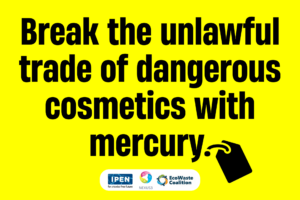
References:
https://ecowastecoalition.blogspot.com/2024/06/ecowaste-coalition-urges-fda-cebu-to.html
https://www.who.int/publications/i/item/WHO-CED-PHE -EPE-19.13
https://www.unep.org/globalmercurypartnership/news/editorial/tackling-mercury-pollution-and-racial-discrimination-jointly
https://www.unep.org/news-and-stories/story/why-mercury -still-threat-human-and-planetary-health


